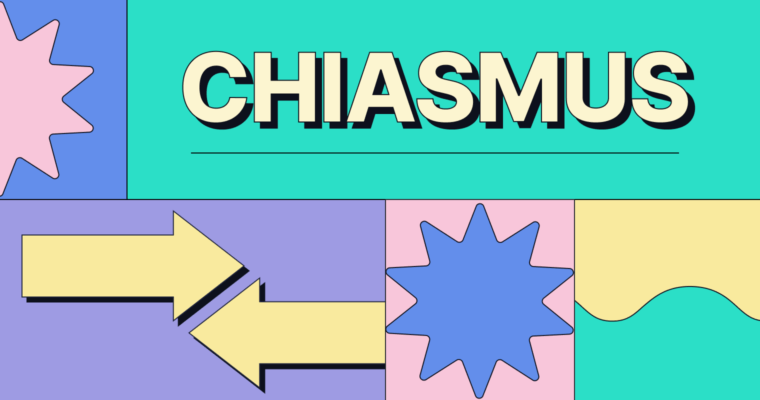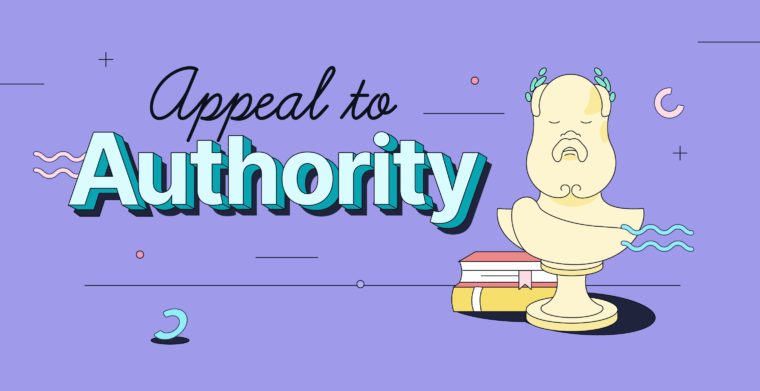
The foundation of any logical argument is at least one credible, logical source to support it. You use a logical fallacy when you support your claim with an illogical source. There are a lot of logical fallacies out there, all of which fail to support their arguers’ claims. However, while many rely on inadequate or irrelevant reasons to support their claims, one of them relies on the lack of any evidence that disproves the claim. This fallacy is known as the appeal to ignorance fallacy.
What is the appeal to ignorance fallacy?
The appeal to ignorance fallacy is the logical fallacy of claiming that a statement must be true because there’s no evidence against it. It can look like this:
- There are ghosts in our attic; nobody’s been able to prove they aren’t there.
- Masha’s doing a great job as team captain since nobody complained about her.
- There’s no way to prove the lost city of Atlantis didn’t exist, which is a reason to believe it could have existed.
With the appeal to ignorance fallacy, the arguer doesn’t provide evidence to support their claim. Instead, they shift the burden of proof to the other party, implying that a lack of proof to the contrary means their claim must be true.
The burden of proof is the obligation one has to prove their claim is true. It’s a legal concept used in both criminal and civil courts. In criminal law, an individual accused of a crime is considered innocent until they are proven guilty. The burden of proof here is on the prosecution to demonstrate that the individual committed the offense they are accused of. In civil court, the burden of proof is on any plaintiff making a claim, such as an individual claiming they slipped and suffered an injury because of a property owner’s failure to maintain a safe environment.
In discourse, the burden of proof applies in a similar way. When you make a claim, you’re obligated to support it with credible sources—it’s not your opponent’s job to prove you wrong.
The appeal to ignorance fallacy, along with other “appeal to” fallacies like the appeal to pity fallacy, is an informal fallacy. That means the claim’s content, rather than its structure, renders the claim illogical. Other informal fallacies include the bandwagon fallacy, the sunk cost fallacy, and the slippery slope fallacy.
How is the appeal to ignorance fallacy used?
Speakers and writers use the appeal to ignorance fallacy in just about every type of writing and nonwritten communication. You’ve likely encountered it in conversations, blog posts, online discussions, and even from high-ranking officials. Sometimes, it’s used to defend an action, rather than to support a claim. Here is an example:
- I’ve never fallen off my bike before, so there’s no reason for me to start wearing a helmet when I ride.
Although the appeal to ignorance fallacy is often used to support claims (sometimes in bad faith), this isn’t the only way it’s used. Sometimes, it’s used in rhetoric to sow seeds of doubt about an idea in readers’ minds. This is similar to the strategy of raising doubts, which can sound like this:
- Although I was the only staff member scheduled to be here, we can’t rule out the idea that somebody else entered the building last night and ate all the cookies.
It can also be used in a nonfallacious manner. Think back to our discussion about the burden of proof and the idea that an individual who is accused of a crime is innocent until they are proven guilty. It hinges on the same concept as an appeal to ignorance argument—that unless a fact can be proven, we must accept that the opposite at least can be true.
Whether an appeal to ignorance is fallacious or not, as with other fallacies that also have nonfallacious applications, depends on how and where it’s used. While the idea that somebody is innocent until they are proven guilty is a key component of our justice system, that same logic wouldn’t hold up in a research paper. In a research paper, like other types of academic writing, the burden of proof is on the author to support any claim they make.
Appeal to ignorance fallacy examples
The university never sent you a rejection letter, so you’ve probably been accepted.
I always leave my car unlocked, and nobody’s ever broken in. It’s fine to leave your car unlocked.
Doctors can’t explain how he recovered. It must have been through our prayers.
Student 1: Why should I join your organization?
Student 2: Why shouldn’t you?
Appeal to ignorance fallacy FAQs
What is the appeal to ignorance fallacy?
The appeal to ignorance fallacy is the logical fallacy of claiming that a statement must be true because there’s no evidence against it.
Are there similar fallacies?
The appeal to ignorance fallacy is an informal fallacy. It’s similar to the false dichotomy fallacy because it presents an oversimplified, black-and-white perspective on a situation: X is true because it can’t be disproven.
How is the appeal to ignorance fallacy used?
The appeal to ignorance fallacy is used in a few ways. It’s often used in an attempt to support a claim, such as:
- You can’t disprove that English majors become the most successful attorneys.
In other cases, it’s used to defend a choice or behavior:
- All of my friends slept through Composition 201, and they all passed. There’s no reason why it won’t be the same for me.
An appeal to ignorance can also be used nonfallaciously. For example, an individual accused of a crime is considered innocent until they are proven guilty.






